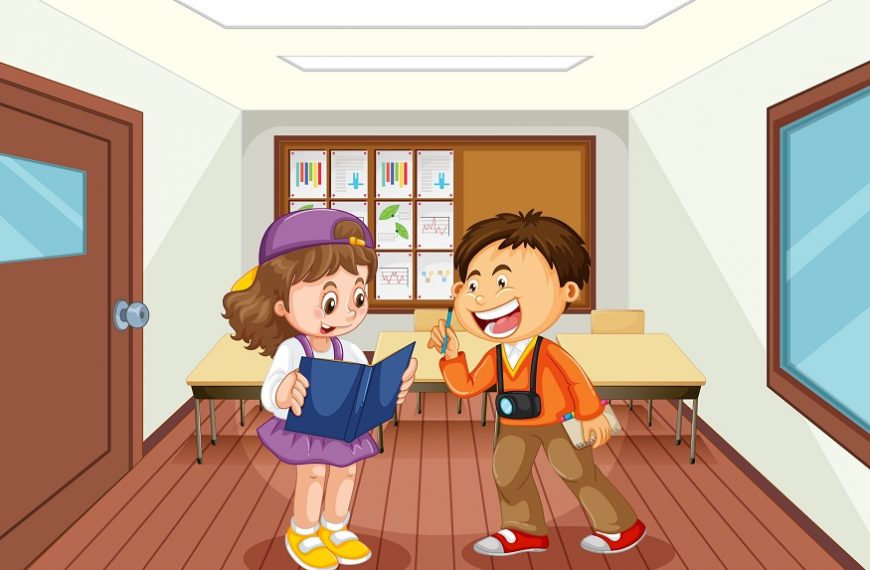People are born with a set of social skills that they utilize daily to engage and communicate with others, both individually as well as in groups. Communication skills, such as active listening and speaking, teamwork, emotional intelligence, persuasion and influencing abilities, negotiation, problem-solving, and decision-making are all examples of interpersonal skills. They also encompass the capacity for restraint and emotional management. Students who possess interpersonal skills benefit from these traits not just academically but also professionally.
It becomes a part of a student’s conduct when they acquire these abilities in the classroom. Interpersonal skills are necessary in all areas of life, be it relationships or careers. Therefore, it is crucial to do so in order to raise the likelihood that one will lead a successful life and profession.
Strong interpersonal skills are extremely important now more than ever in this well-connected and rapidly changing world of today. Victory in academic surroundings, interpersonal exchanges, as well as conceivable vocations all majorly depend on possessing these capabilities. This blog will discuss interpersonal skills, the reason why they are so essential, and, most importantly, ten compelling techniques to assist students in developing them. Throughout this blog, we shall emphasize the value of interpersonal skills as well as propose real-world examples to exemplify their relevancy.
Why are interpersonal skills important?
The desire for communication is of paramount importance for our growth as well as development as humans. We must engage with different people daily, every hour, and sometimes even more repeatedly. All participants entangled in exchanges with others profit from having vital interpersonal aptitudes. Because of this proficiency, we may devise more lasting relationships in our personal and academic lives. At home, interpersonal capabilities may help in fostering trust with parents as well as siblings and solving minor problems.
Interpersonal abilities reinforce pupils in the classroom by aiding them in resolving disputes, getting along with their peers, cultivating an essence of teamwork and partnership, augmenting their mental translucency, and wetting their memory. It is strongly believed that learners with firm interpersonal abilities also have a thriving personal as well as professional life.
What Are Interpersonal Skills?
Let’s first define interpersonal skills before getting into the ways for enhancing them. Interpersonal skills, often known as social skills or people skills, are a broad category of competencies that allow people to engage positively and efficiently with others. Active listening, empathy, verbal and nonverbal communication, conflict resolution, and cooperation are just a few of these abilities.
10 Impactful Ways to Boost Interpersonal Skills in Students:
- Encourage Active Listening: An essential interpersonal ability is active listening, which is paying close attention, comprehending what is being said, and reacting appropriately. Students should be encouraged to do the following in order to develop this talent:
- Keep your eyes in contact.
- Don’t talk during other people’s conversations.
- To be sure you’ve understood, ask clarifying questions.
- Give comments to show that you are interested.
- Foster Empathy and Understanding: The capacity for empathy is the capacity to comprehend and experience another’ emotions. Activities like these can be used to promote empathy in students:
- Role-playing games to gain exposure to many viewpoints.
- Discussions on the backgrounds and perspectives of other cultures.
- Encouraging pupils to consider others’ perspectives.
- Develop Effective Communication Skills: Interpersonal skills are at its core when effective communication is present. In order to improve their communication abilities, students can:
- Communicating verbally in a clear and concise manner.
- Enhancing non-verbal communication, such as facial expressions and body language.
- Learning to modify one’s communication style to suit various contexts and target audiences.
- Teach Conflict Resolution: Life will inevitably involve conflict, but how we respond to it may make all the difference. Techniques for resolving disputes that students can learn include:
- Active listening in tense situations.
- Locating deeper problems rather than concentrating on apparent differences.
- Looking for win-win solutions and a compromise.
- Promote Teamwork: In particular, in work, teamwork is a crucial aspect of interpersonal skills. Student teamwork skills can be developed by:
- Taking part in tasks and projects in groups.
- Acquiring knowledge about teamwork’s job and responsibility distribution.
- Examining the benefits and drawbacks of various team dynamics.
- Provide Constructive Feedback: For one to progress personally, they must receive constructive criticism. It is important to instruct students in:
- Provide constructive and non-judgmental criticism.
- Accept criticism with grace and utilize it as a tool for development.
- Differentiate between criticism and constructive criticism.
- Encourage Public Speaking: The category of interpersonal skills includes the useful talent of public speaking. The benefits of encouraging pupils to practise public speaking include:
- Gain assurance in their ability to communicate their thoughts to a bigger audience.
- Develop their persuasive and communication abilities.
- Learn to modify your message for various audiences.
- Emphasise Cultural Sensitivity: Cultural consciousness is highly crucial in our orb, which is becoming more diverse. Pupils can improve enhanced cultural cognisance by:
- Investigating other civilizations and practices.
- Talking about how important inclusiveness and respect are.
- Taking part in clubs or programmes for cultural exchange.
- Use Technology Mindfully: Technology may be an effective instrument for communication, but if it is used carelessly, it can also prevent the growth of interpersonal skills. Students ought to be inspired to:
- Combine offline and online activities.
- Use technology to enhance face-to-face communication, not to replace it.
- Be mindful of the possibility of miscommunication when communicating online.
- Engage in Volunteer and Extracurricular Activities: Students get the chance to practise and enhance interpersonal skills in real-world contexts by taking part in voluntary work and extracurricular activities. Urging kids to participate in:
- Undertakings carried out by volunteers that need cooperation and communication.
- Clubs and organisations that share their passions and interests.
- Leadership positions in community or educational organisations.
Personal, professional, and academic success all depend on having strong interpersonal skills. It all starts with an understanding of interpersonal skills and why they are so important. Teachers and parents may assist children in becoming more well-rounded persons by actively teaching active listening, empathy, effective communication, conflict resolution, collaboration, and other crucial skills. Furthermore, expanding these skills in students gives them the equipment they require to sustain in a world that is becoming extra diverse as well as interlinked. We are enabling the following generation to triumph in both their personal as well as professional life as we carry on to accentuate the significance of interpersonal skills.












